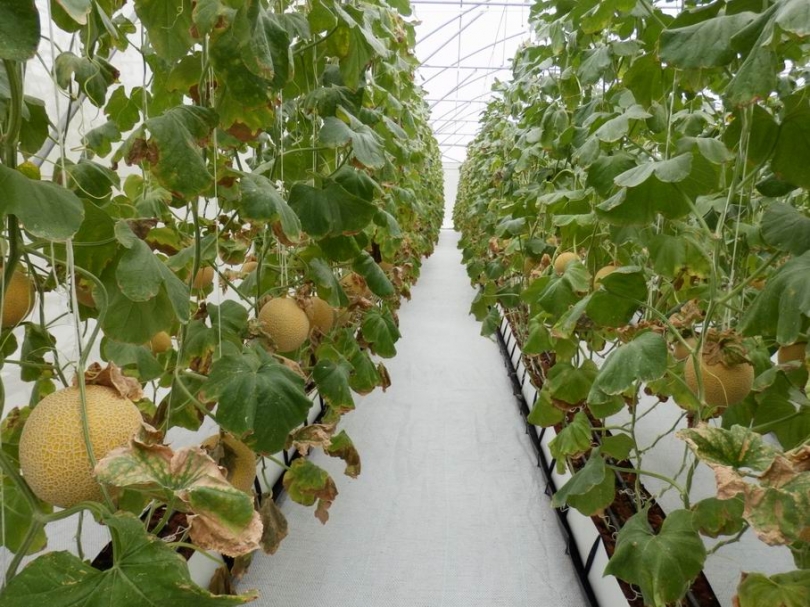At home on the farm

Come for the scenery, stay for the delicious organic produce at Ratchaburi Coro farm
THERE’S SOMETHING very satisfying about the idea of simple living, of dropping out of the rat race and becoming one with nature while still earning enough to live.
It’s a lifestyle choice that’s been wholeheartedly adopted by brothers Phundanai and Mitdanai Sathavonmanee and while the going has been tough at times, they are both now reaping the benefits of the simple life.
Phundanai, a 26-year-old investor who regularly trades on the Stock Exchange of Thailand, and Mitdanai, 30, the managing director of the Sathavonmanee family’s fertiliser business, SV Winners, are the owners of Coro Field, a thriving organic farm in Suan Phung, Ratchaburi.
“Like most of today’s young people, we were caught up in the pressures and stress hustle of modern life,” Phundanai says.
“I don’t want to spend my life making money at the stock exchange, but to do something that I feel is truly worthwhile. I spent the best part of four years sitting in front of 10 computer screens and I needed to do something different, hence this lifestyle choice. I’m sure others feel the same way. I wanted to slow down and recharge.”
Coro Field – the name is a play on chlorophyll – occupies104-rai and so far 15 rai are under cultivation. The planting process on land that was not considered arable involved a considerable amount of trial and error.
“We spent the first year trying to figure out what would grow and there were times when I worried that the land was totally uncultivable. During those 12 months, we planted several vegetables and fruits from salad vegetables to melon. Melon is challenging because it is the hardest to grow, I tested several cultivars of melon, using cultivation know-how from the Netherlands and seeds and techniques from Japan. The greenhouse idea was inspired by Israel.
“If we can grow melon on this land, then other fruit and vegetables should follow. Now, three years later, we have refined and developed our melons. We grow Japanese Golden honeydew, which is similar in shape and texture to the common honeydew. It is however particularly sensitive to changes in temperature. We get over that by growing it in greenhouses, which protects it from temperature variations and insects.
“Our main produce is melon from Hokkaido, tomato from Hollan, and salad vegetables, which we water with mineral water. The mineral water helps them to be less bitter and also crispy.
“We also produce Japanese sweet potato and Japanese green soybean, which is known here at edamame, he says.
Designed as a Japanese-style agro-tourism destination, as well as a farm, Coro Field is divided into five zones. Coro Cafe, a pleasant place to hang out, which operates on a “grow, cook and bake” concept has a menu drawn up by a Thai chef who specialises in Japanese food. The food is fusion – Thai with a Japanese twist – and includes an interesting yakisoba made with pasta. Smoothies are also offered.
Coro House covers the high-tech greenhouses and it is here that visitors can sign up for a 30-40 minute presentation on melons and the technological innovations used in their cultivation. The session costs Bt200 and includes melon tasting. “You should always bite from the middle to the edge of the slice,” Phundanai says.
Fresh salad vegetables and fruits as well as jams, glasses and bags are on sale at Coro Market while Coro Garden is the place to learn about trees and fruits including how to grow and harvest tomatoes. “We charge a very reasonable Bt180 including a krachom, the traditional round bamboo basket used for collecting tomatoes,” says Phundanai.
At Coro Me, which fronts on to an amphitheatre for outdoor meetings and boasts a Zen garden on its roof, visitors can landscape their own mini gardens in glass using tiny ceramic toys, coloured sand and trees.
And from next month, the brothers will be running a bike tour for 20 cyclists in cooperation with GoPro and Vanmoof.
“We’re going to call it the ‘Melon Lover’. Cyclists will be able take in the greenhouses, listen to a melon story, take pictures and video through GoPro, then enjoy a melon buffet,” says Phundanai.
Several models of a Japanese-style mascot are dotted around the farm, and Phundanai affectionately calls them “Cororo Kung”. “They’re like our gardeners. They do the farming at night after other farmers go back home,” he laughs.
“I have a great admiration for all things Japanese. The word ‘coro’ means ‘time’ and our aim at Coro Field is to encourage visitors to integrate with this lifestyle farming. Being at one with nature is soothing to the senses and gives people a taste of the simple life.
“We have adopted Japanese philosophy for Coro Field, blending the art of gardening, minimalism and efficiency with modern technologies from several foreign countries,” he says.
“The second phase of our farm will be completed soon and we will also be offering accommodation.”
PLANTING INSPIRATION
- Coro Field is taking part in the Thailand Post’s “Thiew Suan Phung Bueng Pai Praisanee” community tourism campaign. For details, call 1545 or visit www.thailandpost.co.th.
- Find out more at www.corofield.com or www.facebook.com/corofieldTH.
RELATED





